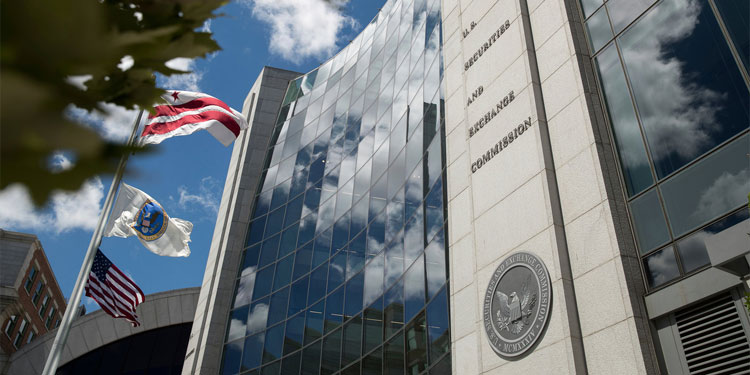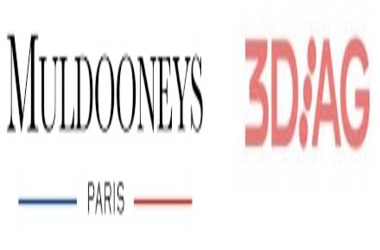 In an effort to drive advancements in the field of recycling and address growing environmental concerns, Roland Berger has selected Dfinity Foundation, a Switzerland-based technology partner, to collaborate on the development of the ‘Voluntary Recycling Credits’ (VRC) standard. This initiative, announced in March the previous year, is at the forefront of a collaborative partnership involving Roland Berger, the BEEAH Group, and the International Solid Waste Association. Together, these entities are working to establish a new standard, powered by blockchain technology, with the aim of enhancing recycling rates within the waste sector.
In an effort to drive advancements in the field of recycling and address growing environmental concerns, Roland Berger has selected Dfinity Foundation, a Switzerland-based technology partner, to collaborate on the development of the ‘Voluntary Recycling Credits’ (VRC) standard. This initiative, announced in March the previous year, is at the forefront of a collaborative partnership involving Roland Berger, the BEEAH Group, and the International Solid Waste Association. Together, these entities are working to establish a new standard, powered by blockchain technology, with the aim of enhancing recycling rates within the waste sector.
Roland Berger Taps Dfinity Foundation for Blockchain-Backed Recycling Credits Standard
Taking inspiration from the Voluntary Emission Reduction (VER) model applied in the carbon market, Voluntary Recycling Credits represent a unit of measurement for a specified quantity of recycled materials, such as aluminum or plastic. By making recycling credits and associated transactions transparent and auditable, this system is set to incentivize companies to invest in recycling.
Companies lacking robust recycling infrastructure but committed to aligning with Sustainable Development Goals will have the option to purchase credits on an upcoming marketplace. These credits will be provided by companies with surplus recycling capabilities. This financial flow is expected to free up additional funds for the development and advancement of emerging recycling technologies.
Innovative Partnership Aims to Boost Recycling in the Waste Sector
The collaborative endeavor has emerged in response to mounting pressure from international organizations, including the United Nations, to mitigate the detrimental impacts of pollution, biodiversity loss, and climate change. The waste sector, which generates approximately 2 billion tons of municipal solid waste each year, currently maintains a low recycling rate, particularly in the case of plastic waste, with less than 10% of such waste being recycled.
Hani Tohme, Managing Partner at Roland Berger in the Middle East, emphasized the opportunity to redefine waste management and make substantial progress in environmental stewardship.
Blockchain Technology to Ensure Transparency and Sustainability
The Voluntary Recycling Credits standard is founded on blockchain technology, regarded as a fundamental element essential to the success of this initiative. It ensures transparency, auditability, and secure records of recycling credits and transactions. Moreover, blockchain’s immutable nature guarantees the integrity of the entire Voluntary Recycling Credits system, as once a credit is recorded, it cannot be altered or duplicated.
Pierre Samaties, Partner at Roland Berger, stressed the importance of selecting the right blockchain technology for this project, one that strikes the right balance between decentralization, security, usability, and storage capacity. Dfinity Foundation, with its Internet Computer blockchain, was chosen as the technology partner for its advanced features and reliability.
The Internet Computer, described as a general-purpose, layer one blockchain operating as a “Cloud 3.0,” has been in operation for over two years, boasting over 750 million daily transactions, a 425% increase from its inaugural year. Notably, Dfinity Foundation places emphasis on the sustainability of its Internet Computer, asserting that it is substantially less energy-intensive compared to competing blockchain projects and current Web2 technology.
Dominic Williams, Founder of Dfinity Foundation, expressed his team’s commitment to sustainability and collaboration with leading enterprises in blockchain technology. He remarked that they are honored to collaborate with Roland Berger on the Voluntary Recycling Credit initiative.
Through this partnership, Dfinity Foundation will develop the underlying technology for the standard. The first significant milestone is scheduled to occur at COP28 in Dubai, where the private-public coalition behind the standard will showcase the first-ever live recycling credits transaction.
Behind the scenes, Roland Berger, BEEAH Group, and the International Solid Waste Association are actively engaged in discussions with governments and leading companies worldwide, advocating for the adoption of the VRC standard. They aim to create a broad ecosystem that champions the system, positioning it as a globally recognized benchmark for recycling incentives.
Addressing the global waste crisis requires innovation and unprecedented collaboration on a large scale. With the development of the VRC platform, the realms of technology and sustainability are being bridged to create a cleaner future. Hani Tohme concluded by expressing immense pride in their contribution to this pioneering initiative.








